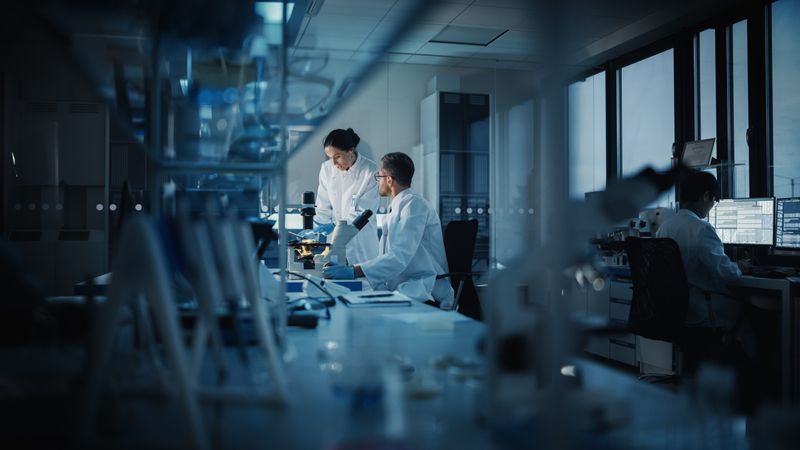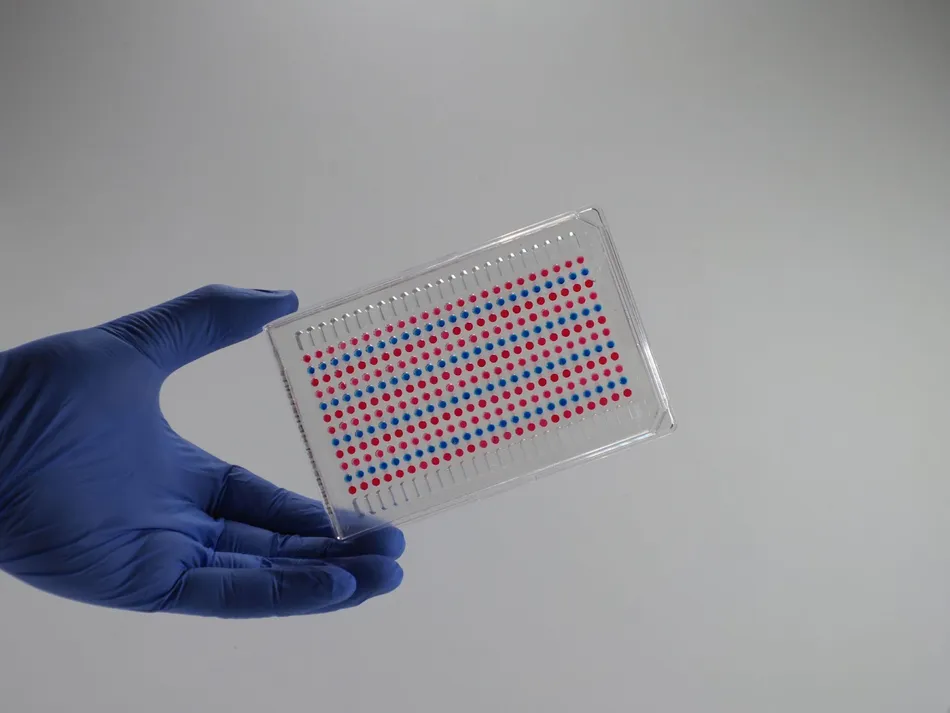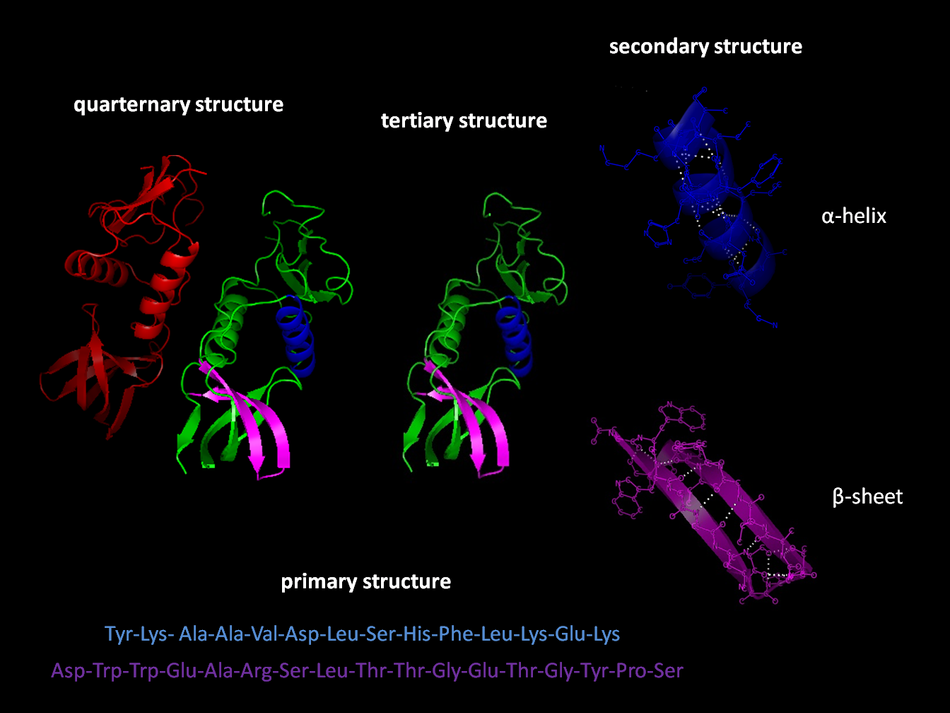The rise of AI-powered drug discovery start-ups
Startups are pioneering a new era of drug discovery that’s cheaper, faster, and more accurate.
This is the second article in a 3-part series examining the future of drug discovery.
Introduction
Traditional drug discovery is a costly and inefficient process. The average cost of bringing a drug to market successfully is $2.8 billion[1] and takes about 10 years [2]. But that's just for the successful drugs. Between 2006 and 2015, only 9.6% of all new compounds being investigated actually made it to market.[3]
However, in recent years, AI has been revolutionizing the way drug discovery happens. For example, earlier this year, the FDA approved the first clinical trial using efficacy data collected on an organ-on-chip platform, without animal trials.[4]
Startups have been the driving force of this new era, pioneering new equipment, tools, and software to take compounds from discovery to market faster, cheaper, and more efficiently than ever. In tis article we take a look at the advantages of using AI in drug discovery and profile some of the startups revolutionizing the industry.
The Advantages of Using AI in Drug Discovery
Applying AI to drug discovery has the potential to revolutionize the way we develop new medications. It has been predicted that AI will save the drug research and development industry $70 billion by 2028 [5]. Along with this, there are several benefits to using AI in drug discovery:
- AI eliminates subjective bias and does not rely on predetermined targets. Using AI for target identification in preclinical stages makes the process faster and more accurate. AI can evaluate all the available data to determine the targets most likely to succeed [6].
- Extract meaningful information from a large dataset. Drug discovery data sets are very large, dynamic, and heterogeneous. AI can mine this data and extract key take-aways that humans never could, saving researchers and pharma companies time and money.[7]
- Higher predictive power reduces the risk of false positives. AI is better able to identify meaningful interactions in a drug screen. This lowers the chances of mistakenly taking an ineffective drug to clinical trials. For example, a lack of preclinical predictive modeling is a significant reason why cancer drugs don't often make it to market [8].
- Speed up the drug discovery and development process. AI boosts efficiency across many different stages of the drug development process. Preclinically, AI improves drug target identification and predictive modeling. AI also speeds up molecule design and testing, and drug screening.[9]
- AI eliminates the need for animal testing. One of the biggest reasons drug discovery is so inefficient is because the compounds are first tested on animal models, which do not accurately reflect human physiology. This means lots of drugs make it through to clinical trials that are not actually beneficial for humans.[10]
- Organs-on-chips. This new technology tool such as the AKITA Plate, is designed to recreate human tissues outside the body. This enables researchers to get a more accurate and reliable idea of how the human body will react to different drugs, without the need for animal testing. The AKITA Plate is a wellplate, an alternative to the traditional petri dish. It's designed to recreate cell growth and adhesion as similarly as possible to in vivo conditions as possible, and replaces the need for animal testing in preclinical trials. They recently demonstrated their Bone Marrow-On-Chip which replicated animal results as a unique assay to study potential therapeutic targets for fighting prostate cancer.[11]
Innovative AI-Driven Drug Discovery Start-Ups
In recent years, a host of startups have emerged focusing on applying AI to various parts of the drug discovery process. Exploring various technologies such as machine learning, predictive analytics, and data mining, these startups are able to address various challenges in the pharma industry.
1. Isomorphic Laboratories
Launched by Google's parent company Alphabet in November 2021, Isomorphic Laboratories is on a mission to "use AI to accelerate drug discovery and find cures for some of humanity’s most devastating diseases."
Their CEO is none other than Demis Hassabis, also the CEO of DeepMind. DeepMind's AlphaFold project was awarded "Method of the Year" in 2021 by Nature and "Breakthrough of the Year" by Science.[12] If that's anything to go by, we can expect big things from Isomorphic Laboratories in the months to come.
2. Standigm
Standigm prides itself on using AI-driven drug discovery methods to deliver a first-in-class lead compound in 7 months.
Founded in 2015, Standigm has raised $71.2M in funding and has developed an early-stage drug discovery workflow AI that hinges on securing novel targets with AI-based deep prediction and analysis.
3. Exscientia
Founded in 2012, Exscientia is one of the older players in the pharmatech market. They were the first company to automate drug design, and the first to have an AI-designed molecule enter clinical trials.[13]
They are focused on both design and experiment, which accelerates the preclinical drug discovery stage. This means they work on both implementing AI design and precision data generation. Together, this creates a powerful and high-fidelity integrated AI and machine learning system.
4. Genome Biologics
Genome Biologics is a data-driven drug development leader in the area of cardiovascular and cardiometabolic health. They use technology platforms to accelerate the development of therapies for illnesses that still don't have an effective treatment - like cardiotoxicity, heart failure and hypertrophic cardiomyopathy.
Their technology centers on translating AI-driven big data analysis into a precision preclinical organoid (TrueCardium™). Candidate molecules identified in drug discovery are then tested and validated on this organoid, instead of in preclinical animal trials. This enables Genome Biologics to accelerate drug development while making it more accurate, efficient, and affordable.
5. Insitro
Insitro lies at the intersection of human biology and machine learning. Their aim is to improve predictions about which paths are more likely to lead to successful medicines.
They're making waves in the pharmatech industry. Recently, Insitro raised their series C funding of $400 million, and agreed a five year drug discovery partnership with Bristol Myers-Squibb.[14]
6. Zephyr AI
Born in late 2020, Zephyr AI proclaims itself "the world's most cutting-edge algorithms for advancing human health". A unified platform, Zephyr AI turns disparate data into actionable insights.
Zephyr AI does this by harnessing a range of data points from different outputs, such as protein-protein interactions, DNA methylation, animal models, clinical trial data, organoids like the AKITA Plate, and many more. This data is then translated into applications and recommendations to improve different areas such as clinical trial and design, precision treatment recommendations, and of course, drug development.
The Future of AI and Drug Discovery
Thanks to the advent of a range of breakthrough technologies, the future of AI in drug discovery looks optimistic. According to a 2022 report [15] by The Business Research Company, AI in drug discovery is growing at a rate of 30% per year. The largest branch of technology driving this growth is the adoption of cloud-based applications and services.
End-users of cloud-based drug discovery platforms tend to be large pharmaceutical companies, as they hold most of the high-value market. For example, Amazon Web Services announced in December 2021[16] that they were partnering with Pfizer to develop cloud-based solutions that could accelerate and improve drug discovery.
Startups will continue to play a large role in the new era of drug discovery powered by AI. Their ability to be more agile and work under resource-constrained than their more established counterparts, giving them the creative and iterative advantage to problem-solve faster.
High throughput organ-on-chips like Finnadvance's AKITA Plate can greatly aid this part of the process, by more accurately and reliably replicating in vivo conditions and eliminating the need for animal testing in preclinical stages. Startups can tap into this technology to help identify candidate compounds with higher potential for success, faster.
About The Sponsor: AKITA
AKITA is the product line by Finnadvance Ltd., a Finnish biotechnology company that develops highly scalable organ-on-chip platforms. Our lab and team operate in Oulu, Northern Finland. By enabling physiological model developments, drug development and research can be significantly accelerated and made highly cost and resource-efficient, while producing more reliable results. We provide the highest throughput platforms with accurate biological modeling.
This is the second article in a 3-part series examining the future of drug discovery.
The first article looked at advances in AI drug discovery
The second article demonstrated the role of startups in revolutionizing the healthcare industry.

References
[1] Lindsley C. New Statistics on the Cost of New Drug Development and the Trouble with CNS Drugs. ACS Chemical Neuroscience [Internet]. 2014 [cited 18 July 2022];5(12):1142-1142. Available from: https://pubs.acs.org/doi/10.1021/cn500298z
[2] Biopharmaceutical Research & Development: The Process Behind New Medicines [Internet]. Phrma-docs.phrma.org. 2015 [cited 18 July 2022]. Available from: http://phrma-docs.phrma.org/sites/default/files/pdf/rd_brochure_022307.pdf#:~:text=The%20discovery%20process%20includes%20the%20early%20phases%20of,the%20process%20takes%20approximately%20three%20to%20six%20years
[3] How drugs go from discovery to the pharmacy shelf [Internet]. Medicine.uq.edu.au. 2017 [cited 18 July 2022]. Available from: https://medicine.uq.edu.au/article/2017/10/how-drugs-go-discovery-pharmacy-shelf
[4] Puiu T. Human-on-a-chip system replicates rare neuromuscular disorders, finds new treatment without animal testing [Internet]. ZME Science. 2022 [cited 27 July 2022]. Available from: https://www.zmescience.com/science/news-science/human-on-chip-system-16072022/
[5] Piekarz D. AI in Drug Development: A Glimpse Into the Future of Drug Discovery [Internet]. Dataart.com. 2021 [cited 18 July 2022]. Available from: https://www.dataart.com/blog/ai-in-drug-development-a-glimpse-into-the-future-of-drug-discovery
[6] Hunter J. The promise of using AI for target identification and working with AstraZeneca | BenevolentAI [Internet]. Benevolent.com. 2019 [cited 18 July 2022]. Available from: https://www.benevolent.com/news/the-promise-of-using-ai-for-target-identification-and-working-with-astrazeneca
[7] Zhu H. Big Data and Artificial Intelligence Modeling for Drug Discovery. Annu Rev Pharmacol Toxicol [Internet]. 2019 [cited 18 July 2022];60:573 - 589. Available from: https://pubmed.ncbi.nlm.nih.gov/31518513/
[8] Honkala A, Malhotra S, Kummar S, Junttila M. Harnessing the predictive power of preclinical models for oncology drug development. Nature Reviews Drug Discovery [Internet]. 2021 [cited 18 July 2022];21:99-114. Available from: https://www.nature.com/articles/s41573-021-00301-6
[9] Ayers M, Jayatunga M, Goldader J, Meier C. Adopting AI in Drug Discovery [Internet]. BCG Global. 2022 [cited 18 July 2022]. Available from: https://www.bcg.com/publications/2022/adopting-ai-in-pharmaceutical-discovery
[10] Human Organs-on-Chips [Internet]. Wyss Institute. 2022 [cited 18 July 2022]. Available from: https://wyss.harvard.edu/technology/human-organs-on-chips/
[11] Wenta T, Schmidt A, Zhang Q, Devarajan R, Singh P, Yang X et al. Disassembly of α6β4-mediated hemidesmosomal adhesions promotes tumorigenesis in PTEN-negative prostate cancer by targeting plectin to focal adhesions. Nature Oncogene [Internet]. 2022 [cited 27 July 2022];41:3804–3820. Available from: https://www.nature.com/articles/s41388-022-02389-5
[12] Isomorphic Labs | Newsroom [Internet]. Isomorphiclabs.com. 2022 [cited 18 July 2022]. Available from: https://www.isomorphiclabs.com/newsroom
[13] Parkins K. Exscientia to start world-first trials of AI-designed immuno-oncology drug [Internet]. Clinical Trials Arena. 2021 [cited 18 July 2022]. Available from: https://www.clinicaltrialsarena.com/news/exscientia-to-start-world-first-clinical-trials-of-ai-designed-immuno-oncology-drug/
[14] insitro Announces Five-Year Discovery Collaboration with Bristol Myers Squibb to Discover and Develop Novel Treatments for Amyotrophic Lateral Sclerosis and Frontotemporal Dementia [Internet]. Businesswire.com. 2020 [cited 18 July 2022]. Available from: https://www.businesswire.com/news/home/20201028005276/en/insitro-Announces-Five-Year-Discovery-Collaboration-with-Bristol-Myers-Squibb-to-Discover-and-Develop-Novel-Treatments-for-Amyotrophic-Lateral-Sclerosis-and-Frontotemporal-Dementia
[15] Artificial Intelligence (AI) In Drug Discovery Market Growth Is Driven At A 30% Rate With Increasing Adoption Of Cloud-Based Applications And Services As Per TBRC's Artificial Intelligence (AI) In Drug Discovery Global Market Report 2022 [Internet]. GlobeNewswire News Room. 2022 [cited 18 July 2022]. Available from: https://www.globenewswire.com/news-release/2022/05/24/2449612/0/en/Artificial-Intelligence-AI-In-Drug-Discovery-Market-Growth-Is-Driven-At-A-30-Rate-With-Increasing-Adoption-Of-Cloud-Based-Applications-And-Services-As-Per-TBRC-s-Artificial-Intelli.html
[16] AWS Helps Pfizer Accelerate Drug Development And Clinical Manufacturing | Pfizer [Internet]. Pfizer.com. 2021 [cited 18 July 2022]. Available from: https://www.pfizer.com/news/press-release/press-release-detail/aws-helps-pfizer-accelerate-drug-development-and-clinical



